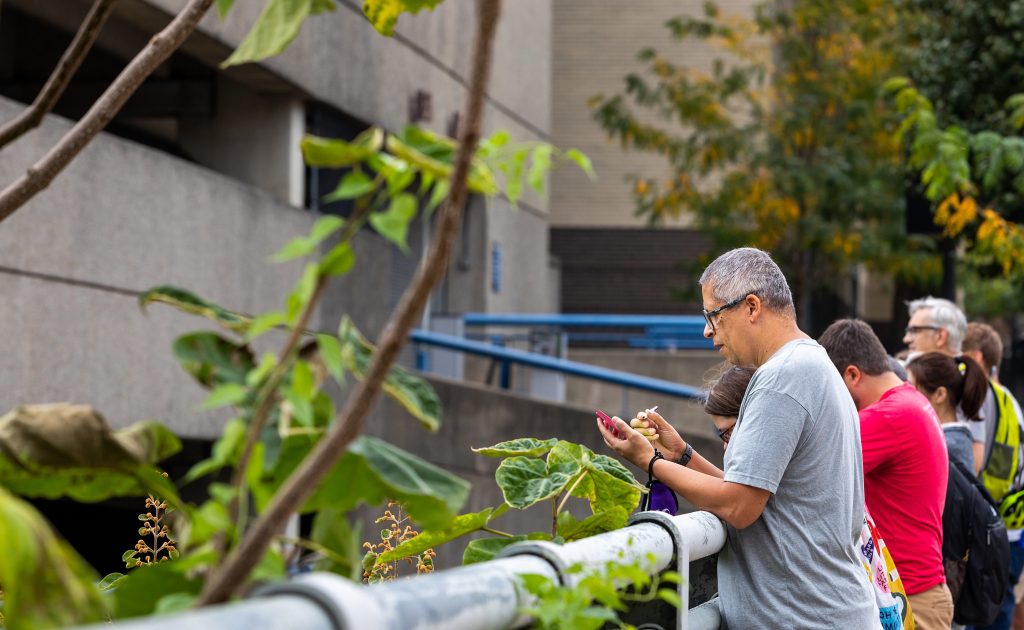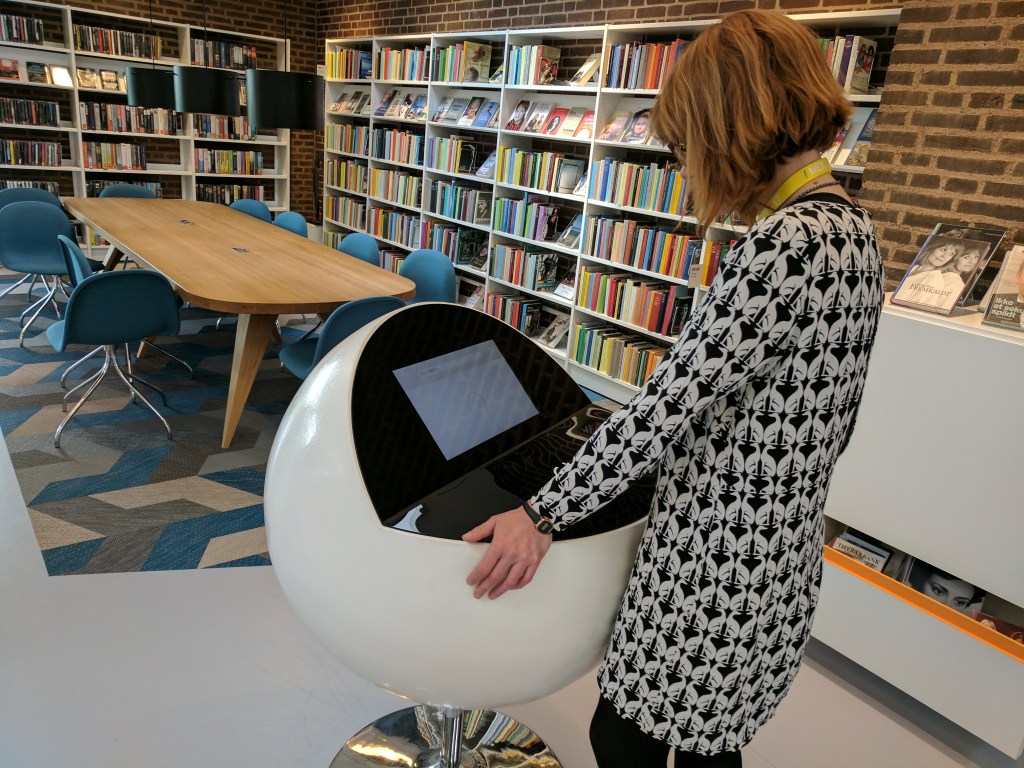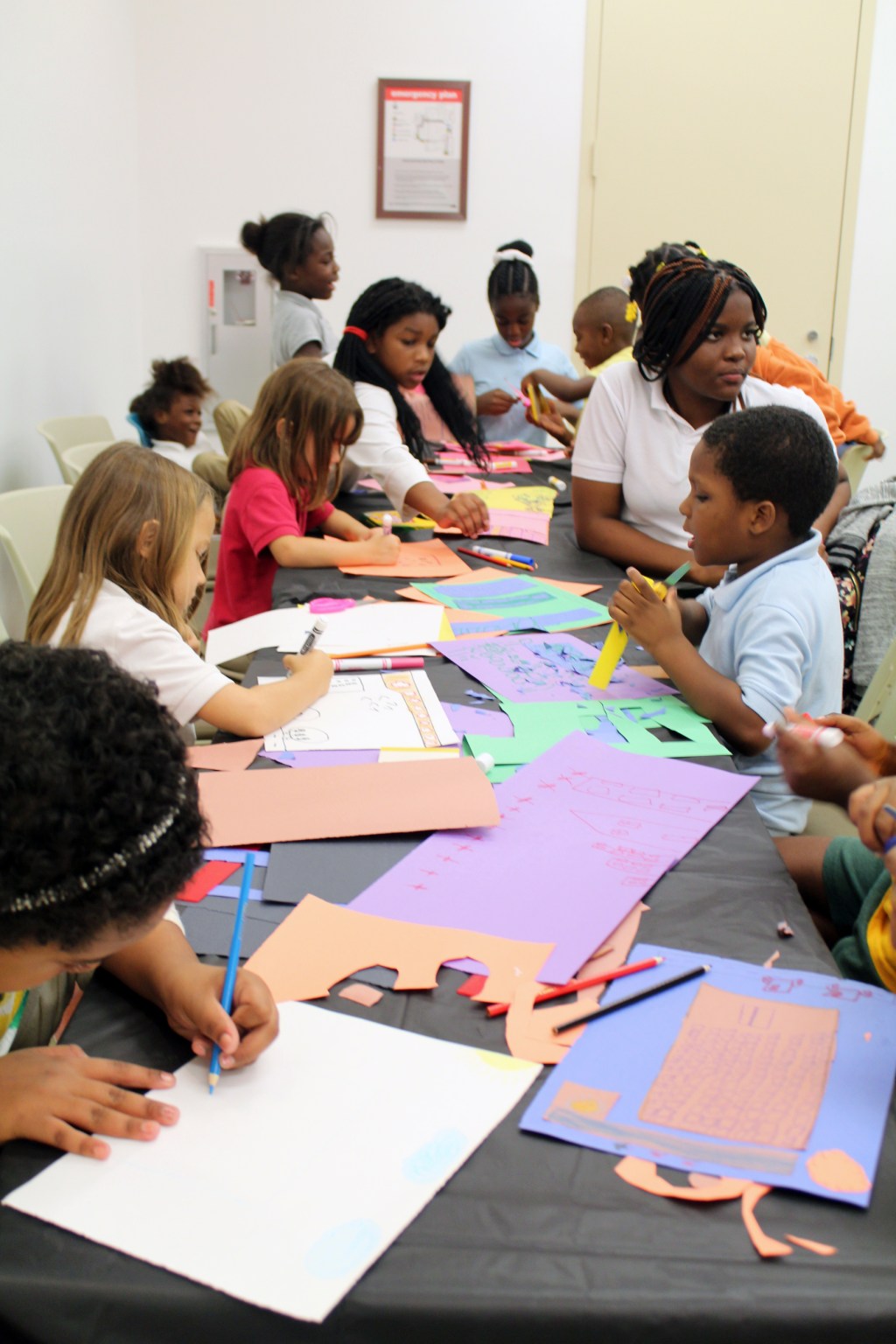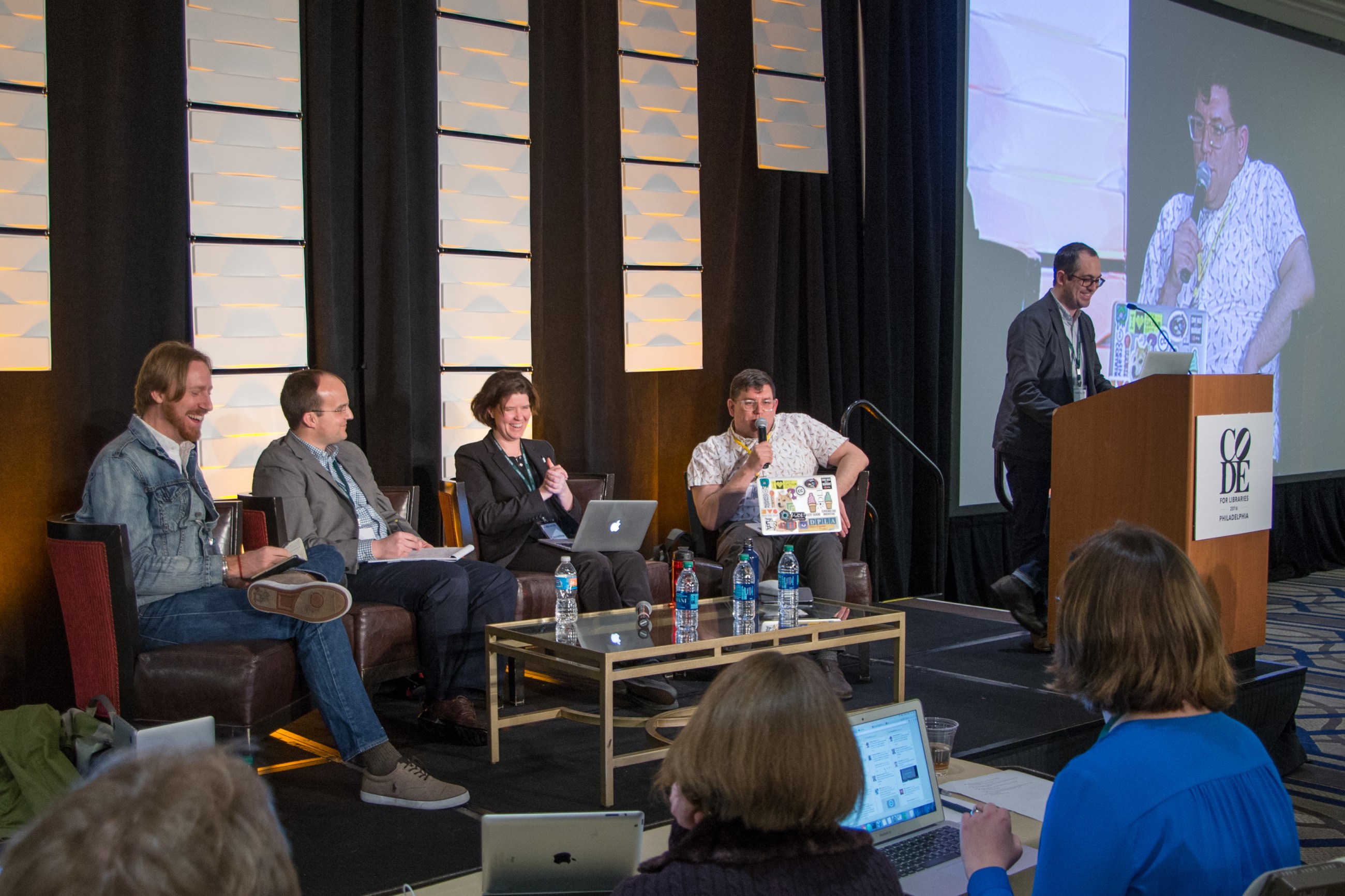
How the Code4Lib annual conference is helping shape the future of libraries
Code4Lib 2016 conference in Philadelphia. Photos by Raymond Schwartz.
Edward M. Corrado is associate dean, library technology planning and policy, at the University of Alabama.
The Code4Lib conference is an annual convening that attracts technologists interested in libraries, archives and museums. Code4Lib 2016, the 11th annual conference, was held in Philadelphia from March 8 – March 10 with a day of preconference sessions on March 7. The event has grown tremendously since the first conference at Oregon State University in Corvallis in 2006, quadrupling from about 100 attendees to 450. Now, even more people get to participate via a free live-stream of the conference.
Although the conference has grown, many elements remain the same. One of the most important is that the conference—except for a few breakout discussions—follows a single track, meaning everyone who attends watches the talks in one large room. One of the advantages to this approach is that everyone has a shared experience. When people talk to each other during the breaks, at social events in the evenings or after the conference they all have a similar frame of reference.
Keynotes, regular talks, lightning talks and breakout sessions, many determined with input from Code4Lib members, cover a variety of topics germane to our community. Both of the keynotes touched on privacy, an issue of increasing concern in the library community and in other sectors.
The first was delivered by Kate Krauss, the director of communications and public policy at The Tor Project, which is a previous winner of the Knight News Challenge and other Knight funding. Her talk was well received and got the conference off to a good start. The closing keynote was from Gabriel Weinberg, CEO and founder of DuckDuckGo, a search engine that doesn’t track you, and co-author of “Traction.” Weinberg discussed issues relating to privacy as well as some of the things search engines that track users, such as Google, do with that data and how it can affect search results, leading to people seeing mostly results that support their view on something, a timely topic given that we’re in the middle of presidential primaries in the U.S.
Weinberg also discussed the concept of frictionless privacy. He said users want privacy but they do not want to give up much for it. He encouraged us to try DuckDuckGo, which display advertisements based on search queries but not based on the user’s history. One issue that he said libraries should keep in mind when designing library systems is, “When you are searching, you generally want an answer.” As libraries adapt to serve 21st century information needs it is important to consider both user privacy and user convenience.
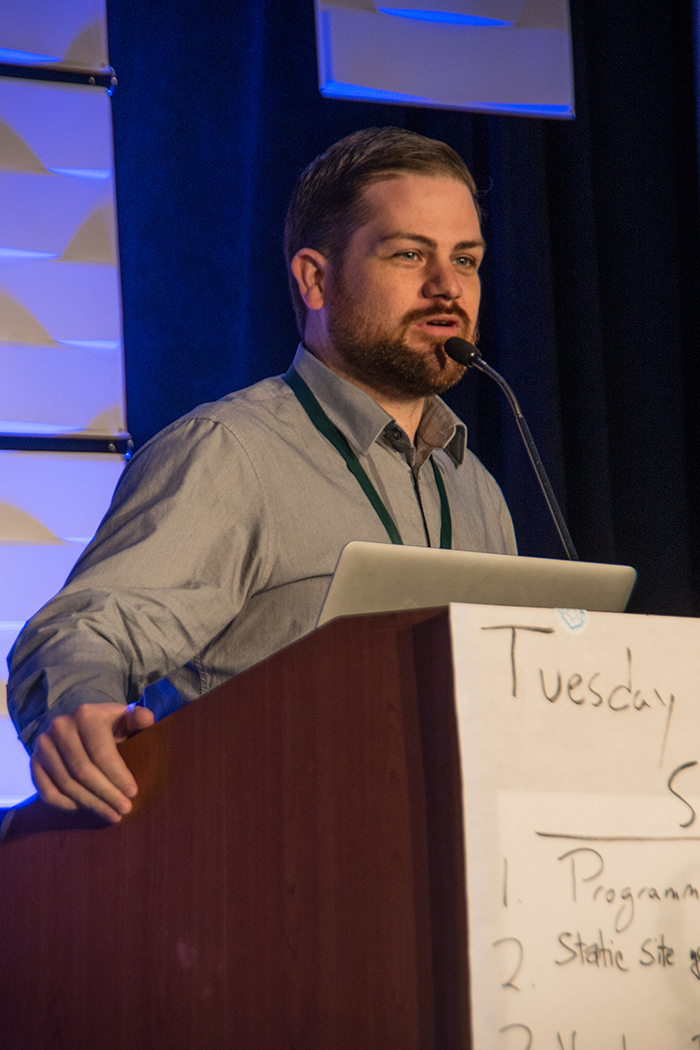
Knight Foundation’s director of media innovation Chris Barr presents at Code4Lib in Philadelphia.
All of the talks were well done and topical, but two emphasized some principles that I believe technologists in libraries and other fields need to remember when designing or implementing systems for the 21st century user.There were about 60 other talks. Despite the breadth of the discussions, some common themes did emerge, including digital preservation, using GitHub for more than just storing code, working with metadata, digital archives, and that software developers should learn more of the underlying technologies of the Web, which will make their work easier.
The 21st century library needs to serve a diverse audience and this includes people with accessibility issues. Katherine Lynch’s talk on “Growing Accessibility: Advanced Web Accessibility Coding and User Testing for Libraries” discussed the importance of Web accessibility to ensure equitable access to information. As part of her talk she offered some best practices for coding and discussed the importance of accessibility testing and advocacy.
One of the multiple talks that discussed working with bibliographic and other descriptive metadata was John Mark Ockerbloom’s “How not to Waste Catalogers’ time: Making the Most of Subject Headings.” This talk reminded us that subject headings and descriptions in bibliographic records have rich semantics but most library systems do not take advantage of this. Developers need to understand these semantics to make the best use of the work of catalogers. One specific example that Ockerbloom mentioned was that subject headings are placed in a record in order of importance. We can make our systems more functional when we take advantage of how catalogers perform their work.
These were just a couple of the many highlights. If you are involved with library, archive, or museum technology and you have never been to a Code4Lib Conference, I encourage you to try to attend the annual conference in the future or a Code4Lib local chapter meeting. Also, check out the recordings from this year and some previous conferences on the Code4Lib YouTube channel.
The Knight News Challenge on Libraries will award $3 million for the best U.S. ideas that respond to the question, How might libraries serve 21st century information needs? The challenge recently closed with more than 600 entries. Visit newschallenge.org to give feedback and comment on the applications.
Recent Content
-
Communities and National Initiativesarticle ·
-
Communities and National Initiativesarticle ·
-
Artsarticle ·
